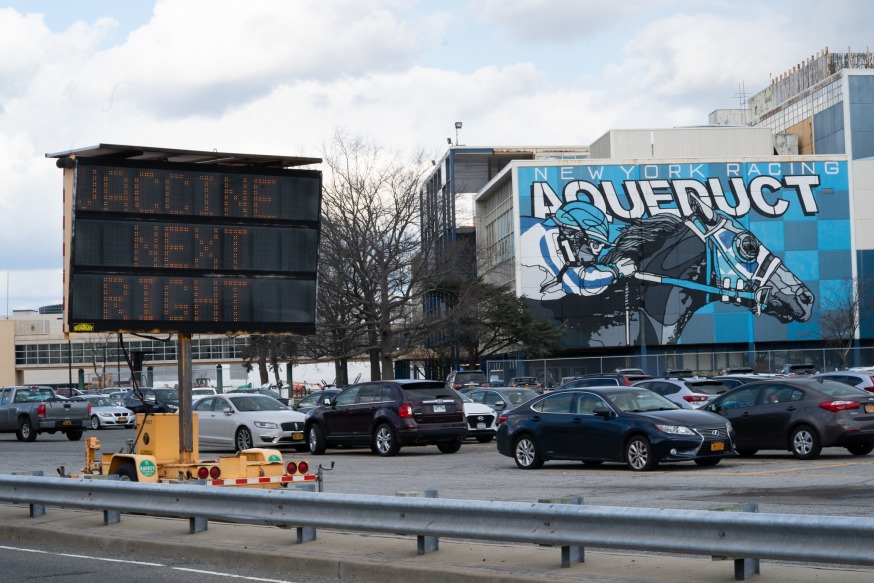
The Aqueduct Racetrack has been converted to a COVID-19 vaccination site (Governor Andrew Cuomo’s Office)
March 1, 2021 By Allie Griffin
Only a quarter of the potentially life-saving COVID-19 shots at a Queens vaccine site have been put in the arms of city residents.
About 75 percent of the vaccines at the state-run site inside the Aqueduct Racetrack facility have gone to people who live outside the city, Mayor Bill de Blasio said Monday.
Meanwhile, few residents of the neighborhood where the vaccine site opened in January — South Ozone Park — have been vaccinated for COVID-19 at all, according to city data.
Just 5 percent of adults in South Ozone Park have received the first dose of the vaccine and another 5 percent have received both doses. Boroughwide, 7 percent of Queens adults have received their first shot and another 7 percent have received both, according to the data.
South Ozone Park — which is predominately comprised of residents from the Black, Asian and Hispanic communities — has been hit hard by the pandemic.
The community — represented by the ZIP code 11420 — has one of the highest seven-day COVID-19 positivity rates among city ZIP codes at 10.33 percent, according to recent city data. It’s well above the citywide positivity rate of 7.67 percent.
De Blasio said that the big vaccination sites like Aqueduct Racetrack have limitations in terms of addressing inequity.
“Unless they are targeted properly, these big sites do not actually help us improve equity and fight disparity,” he said during a morning press briefing. “Unfortunately… they can exacerbate disparity.”
He also said that 42 percent of the COVID-19 shots at the state-run vaccine facility at the Jacob Javits Center in Manhattan are going to non-city residents.
“We’ve got to fight disparities, which means more grassroots vaccination centers getting more of the vaccine and recognizing the limitations of the big sites that existed previously,” de Blasio said.
He emphasized the importance of community-based vaccine centers at places like public housing, senior centers and high schools, as well as targeted vaccine sites.
Vaccination sites at both Citi Field and York College, for example, are open to Queens residents only. The latter also prioritized residents of specific ZIP codes with high COVID-19 positivity rates, but low vaccination rates — including 11420 — for vaccine appointments.
